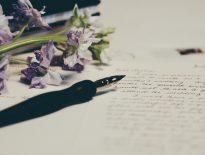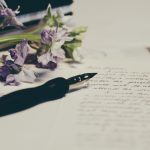What is research?
To put it simply: it means to investigate systematically.
Why must you research?
“Research is what propels humanity forward.”
Research feeds our curiosity, teaches us new things about life around us, and helps us to deal with challenges.
Read – Intentional Living: How to Live your Dream by Funminiyi Akinrinade, Nigeria
What types of research are there?
Many types of research are used by different people especially when it comes to scientific approaches and other complicated concepts and subjects we won’t talk about. However, the following are good for creatives to know:
Quantitative and Qualitative
- Quantitative is about numbers while qualitative is about descriptions.
Observational and Experimental
Observational is more of just looking for information about what’s on the group whereas Experimental includes manipulating or controlling the involved elements to get results.
Example:
Seeing how your sister’s baby grows is observational.
To put a person on different diets and workouts to see whether they’ll get fit is experimental.
Research is popular in academia, but research is for everyone, especially those that intend to impart information to the public. Among those are creatives.
Read – Mindfulness: The Art of Breathing in and Out by Lise Nova Berwadushime, Rwanda
Why conduct research as a creative?
- It helps to get information about facts and useful quotes.
- It helps you to grasp the context and manipulate information accordingly.
- It helps you to choose your audience for your work.
- It helps you to make your work captivating for the audience.
- It helps to evade any legal issues that might arise from misinformation.
Example:
you might be writing a novel set in a location that you’re not familiar with such as a country you haven’t lived in for some time. Your writing might not be convincing to the audience because the description is not rich enough due to the lack of research. Moreover, you might provide information about the place that you’re not sure about.
NB: For genres like sci-fi, futuristic, and fantasy, the writer might create something entirely new and different, but still they need to have a good understanding of the status quo for them to manipulate the information better.
Read – Sentence Complexity in Creative Writing by Francis Mkwapatira, Malawi
How can you do research as a writer?
- Internet research (it’s affordable and cost-effective, but can be misleading if you consult sources that are not credible.)
- Travelling (For writers and creatives, travelling can be a source of inspiration. It helps a lot when you see things and experience life in another place.)
- Reading (the more you read, the more you learn about what is already on the ground, how other writers approached the same topics and themes, and explore different styles of diction).
Extra ways of research: News, Movies, Songs, …
End Note:
- Research is important for fiction, non-fiction, and sometimes even for poetry.
- Research is the tool for articulation.
- You can do research at any phase of your writing, even during editing (to double-check the facts).
- Writing and Reading are inseparable (at least for a legit writer).
- Writing is rewriting (Because you gain a new perspective and refine your work).
 Nadege Sandra Uwayezu (Sandra Nadege) is a writer/poet based in Kigali, currently pursuing Business Communication at Southern New Hampshire University through Kepler College based in Kigali, Rwanda. She is the author of three books, ‘Light in the Dark’ a memoir, and two poetry collections ‘First Creation’ and ‘Sense and Sensation’. She is also the editor of 5 Rwandan published books that include 2 novels, 2 poetry collections, and an inspirational book. She has interned at the former Kigali Arena (now BK Arena) as a copywriter. Apart from that, her artistic ventures include poetry performances, theater performances, and singing. Her hobbies range from creating handcrafts to hiking to travelling to environment and wildlife conservation. For more of her works, you can visit her website www.sandra-nadege.com to read short stories, poems, articles, and travelogs.
Nadege Sandra Uwayezu (Sandra Nadege) is a writer/poet based in Kigali, currently pursuing Business Communication at Southern New Hampshire University through Kepler College based in Kigali, Rwanda. She is the author of three books, ‘Light in the Dark’ a memoir, and two poetry collections ‘First Creation’ and ‘Sense and Sensation’. She is also the editor of 5 Rwandan published books that include 2 novels, 2 poetry collections, and an inspirational book. She has interned at the former Kigali Arena (now BK Arena) as a copywriter. Apart from that, her artistic ventures include poetry performances, theater performances, and singing. Her hobbies range from creating handcrafts to hiking to travelling to environment and wildlife conservation. For more of her works, you can visit her website www.sandra-nadege.com to read short stories, poems, articles, and travelogs.







